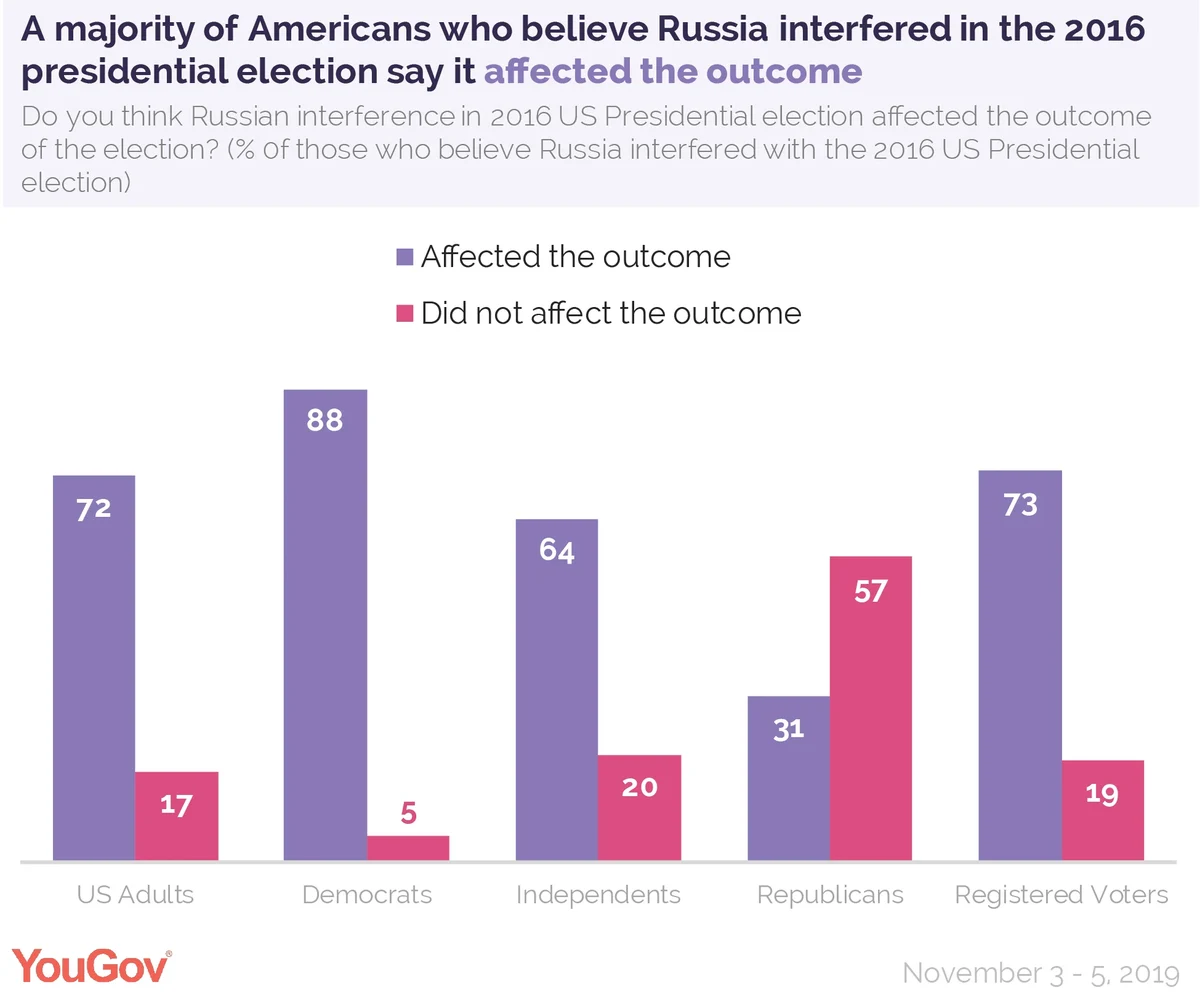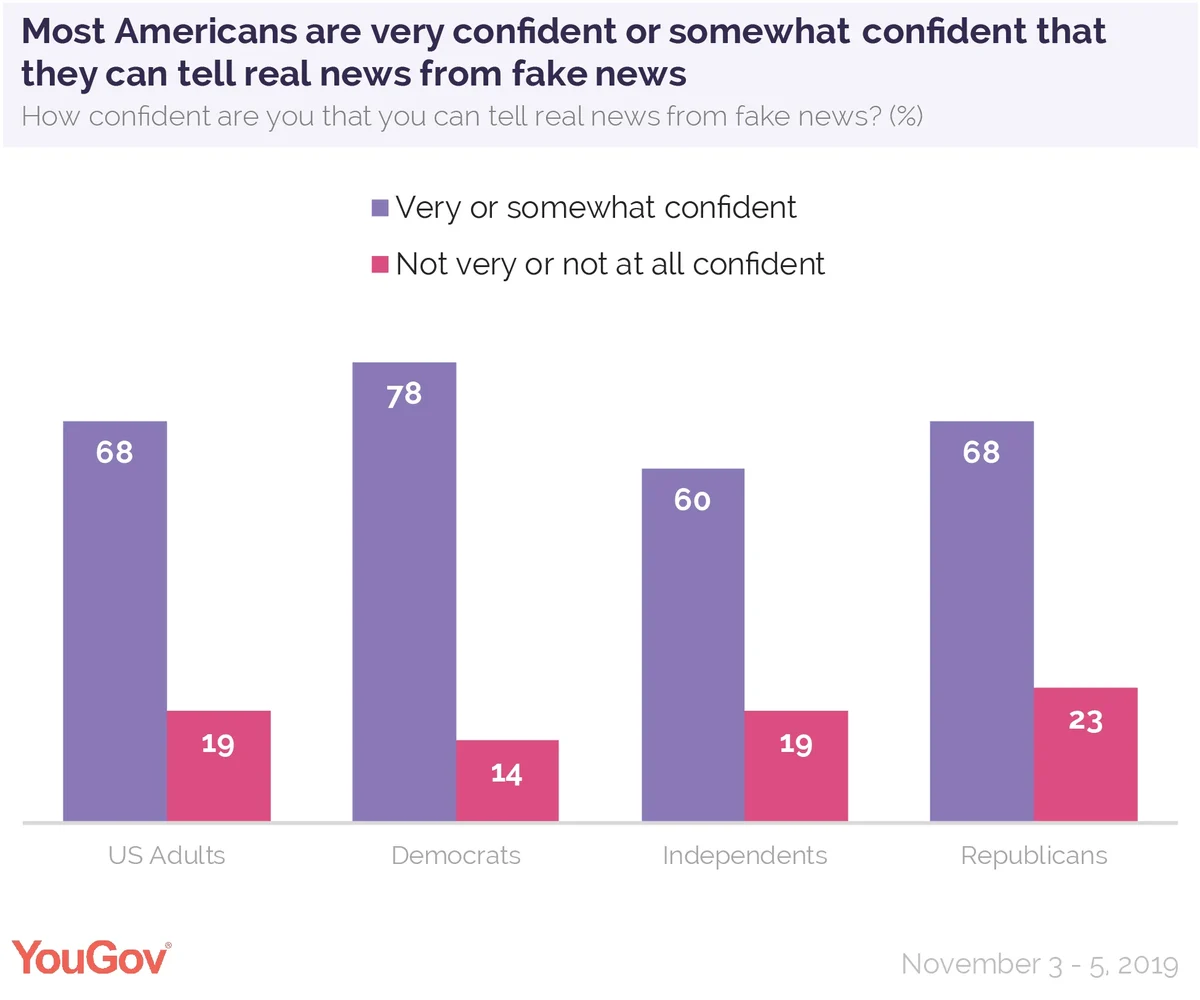Democrats are far more worried than Republicans about the safety of US elections. In the latest Economist/YouGov Poll, Republicans are dubious that Russia interfered in the 2016 elections and doubt it will interfere in 2020. Most Democrats believe they did and will again. But Democrats are also much more concerned than Republicans that the United States cannot defend itself from election interference next year, and their own votes may not be counted properly.
Independents are more like Democrats than Republicans in their responses.
Democratic concern about vote counting may stem from a number of factors: the close 2000 Florida election, where ballot design deficiencies were discovered during the recount; worries about being turned away from the polls or being removed from voting lists; as well as a reaction to the president’s establishment of a “Commission on Election Integrity” in May 2017, disbanded the next January after Court battles over the commission’s request for voters’ personal data. Republicans may see all of these events as elevating their confidence in vote counting.
As for foreign influence, even those Republicans who believe that Russia interfered in 2016 (24%) are twice as likely to say it did not affect the outcome (57%) as to think it did (31%). Among the majority of both Democrats and independents who say there was interference, most believe that interference affected the outcome.

Foreign election interference could include promulgating fake news on digital networks. Most Americans think that they can tell the difference between something that is fake news and something that is not. Fewer than one in five are not confident in their ability to see the difference – with slightly more Republicans (23%) than Democrats (18%) thinking this. Younger adults are more worried than older adults about their skill detecting fake news; there is little difference by education.
There is a difference in what people believe is fake news. For some, it is not just Facebook postings from unknown websites or altered videos. Most Republicans say that the mainstream media itself mostly produces fake news.

Seven in ten Republicans regard the media as unfriendly to the American people; 41 percent regard it as an “enemy.” Democrats disagree and independents are divided.
Twitter has banned political advertising on its platform; Facebook has announced it will not police political ads for misinformation. These two approaches are at odds with each other. The parties are closer to agreement on their reaction to these decisions than they are with most things in this poll. Both parties support the Twitter ban on political advertisements (though Republicans are much more closely divided).
Democrats and independents disapprove of Facebook’s actions, with Republicans evenly split. President Trump’s campaign, as of now, has spent more than all the Democrats combined on Facebook advertising.
Facebook and Twitter users generally agree with the overall public opinion on these questions.
See the full toplines and tables results from this week’s Economist/YouGov poll.
Image: Getty











